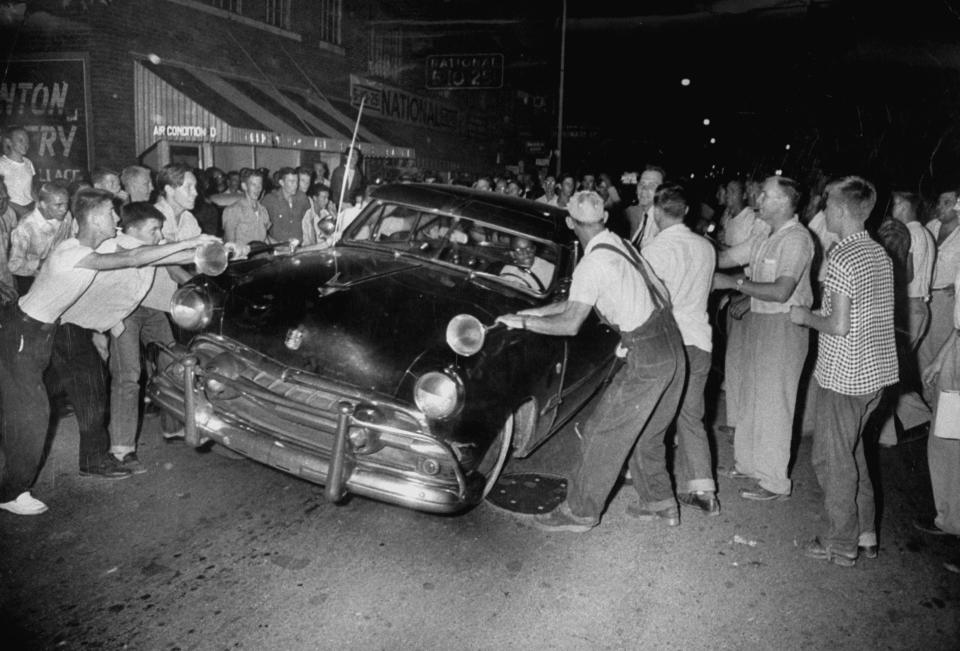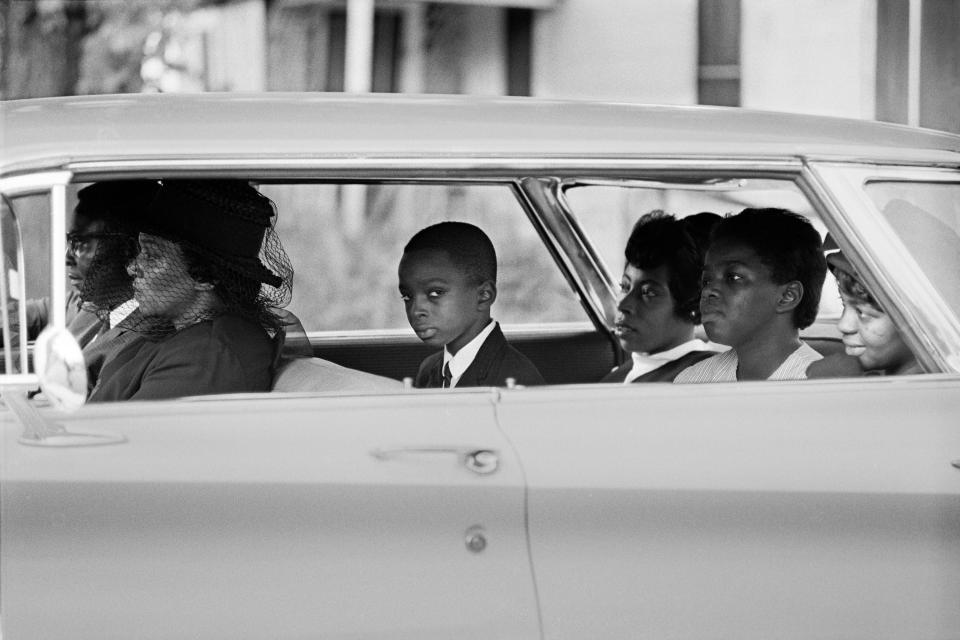'Driving While Black': New PBS documentary examines infuriating history of racism in America
Many people have the luxury of simply hopping in the car and driving, without expectations of harassment or worse.
But not all.
“I think it’s really, really tough for the majority of Americans to begin to even understand the gut-wrenching horror that is driving in a racist society,” Christopher West, a historian, says in “Driving While Black: Race, Space and Mobility in America,” a new PBS documentary (Tuesday, 9 EDT/PDT, check local listings or stream on PBS.com) by Gretchen Soren and Ric Burns.
The film is a different kind of vehicle – one that allows for a closer examination of racism in America, on the roads and off. Informative, infuriating and almost shockingly of the moment even when addressing issues 400 years ago, it is two hours well spent.

The documentary is based on Soren’s book “Driving While Black: African American Travel and the Road to Civil Rights,” and she's included in the film as an expert voice. (The vast majority of experts are people of color, a welcome change from many documentaries of this sort.)
We see plenty of contemporary video recordings from cellphone footage and police cameras of Black people being harassed and even physically harmed by police officers during traffic stops. But the story goes back a lot further than that.
“It’s living while Black,” says Herb Boyd, a scholar in the film. “It’s sleeping while Black. It’s eating while Black. It’s moving while Black. So, when we start talking about the restrictions on Black movement in this country, that’s a long history. That goes all the way back to day one. And so, you have to get to the root of it.”
Barbie gets real about racism: Barbie (yes, the doll) posts a video about racism that goes viral, and for good reason
Looking for books about racism? Experts suggest these must-read titles for adults and kids
The root is, of course, slavery and its forced transportation, whether from Africa to the U.S. or the tearing apart of families when enslaved people were sold. It’s a stark reminder that the movement of Black people has always been controlled in some form or another.
For instance, one expert points out that policing in the South began with slave patrols – basically, armed vigilantes who intimidated and often violently punished enslaved people if they tried to travel without required papers.
The film also traces the brief period after the Civil War when Reconstruction actually helped Black people, and then its disappearance, leading to the Jim Crow era, with its separate-but-equal fantasy.

The advent of the car offered more freedom to move – and especially when traveling in the South, more dangerous situations for Black people. Of course there’s much discussion of “The Green Book,” which Victor Hugo Green wrote and expanded as a travel guide for Black people, pointing out friendly spots to eat and stay while driving around the country – as well as places to avoid, and tips on how to stay safe.
History is replete with other examples of how of transportation is entwined with the Black experience – the Montgomery bus boycott, for instance.
And here we are now. Armed vigilantes show up at Black Lives Matter protests, with threats and sometimes violence. The example after example we see of police officers pulling over Black people, refusing to tell them why, sometimes resulting in tragedy drives the point home with clarity: Driving while Black isn’t just about history. It’s about the world we’re living in now.
Driving while black is not “just a slogan,” historian Craig Wilder says. “It’s not just part of our political rhetoric, it’s not just something we say to remind ourselves of the persistence of racism in the United States.”
West is more succinct: “To me,” he says, “driving while Black is, at its core, driving while afraid."
'Speak up!': ‘Sesame Street’ to tackle racism in TV special 'The Power of We'
Gabrielle Union calls for support for Black women: She says being blackballed 'is very real'
This article originally appeared on Arizona Republic: 'Driving While Black': PBS doc is remarkable look at American racism

